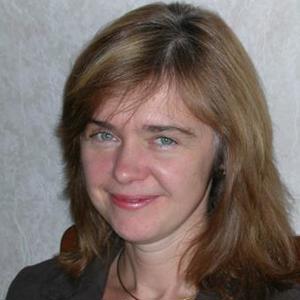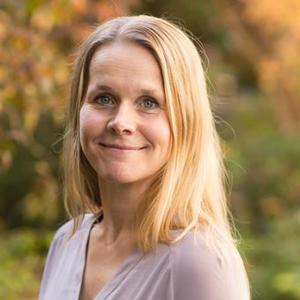Five young researchers at LiU have been awarded starting grants for five years, of between SEK 3.4 and 3.8 million:
Olaf Hartig, senior lecturer, for research into models of graphical databases, and Victor Lagerkvist, for research into fine-grained complexity in satisfiability and constraint satisfaction problems, both at the Department of Computer and Information Science.
Elin Nyman, research fellow in the Department of Biomedical Engineering, for research into patient-specific simulations, Carl-Johan Thore, senior lecturer in the Department of Management and Engineering for robust optimisation, and Klas Tybrandt, senior lecturer in the Department of Science and Technology for research into self-assembling soft nerve interfaces.
Seventy-one applications for starting grants were awarded for the 446 applications, an approval rate of 16%.
Twenty-two project grants
Researchers in the Department of Physics, Chemistry and Biology have been highly successful in the funding round. Fifteen of the 22 senior researchers work in this department.Confirmation that physics, in particular materials science, is a major research area at LiU comes from the fact that as many as eight grants were awarded in the field: Igor Abrikosov, professor of theoretical physics, for research into metastable phases of new nitrides, Björn Alling, senior lecturer in theoretical physics, for theories of disordered magnetic materials, and Sergey Simak, professor of theoretical physics, for work in dynamically organised solids as energy material. Irina Bouianova, professor in biomolecular and organic electronics, for research into nanowires and nanophotonics, Martin Dahlqvist, research fellow in thin-film physics, for research into boride-based materials in 2D and 3D, Fredrik Eriksson, senior lecturer in thin-film physics, for research into neutronoptics and boron carbide, Galia Pozina, associate professor in thin-film physics, for efficient nanophotonic applications, and Johanna Rosén, professor in thin-film physics, for the design of new two-dimensional materials.
The largest research grant, SEK 4.8 million, goes to Per Hammarström, professor in the Division of Chemistry, for research into protein aggregation and diseases. Funding for chemistry research has also been awarded to Professor Henrik Pedersen, for a project using plasma electrons as reducing agent to affect surface chemistry.
Per Jensen, professor of ethology, receives a grant for a project looking at domestication of the social brain, genetic and epigenetic mechanisms, while research fellow Carlos Guerrero Bosagna receives a grant to investigate the epigenetic effects of early metabolic challenges. In the field of bioinformation, grants were awarded to Professor Bo Durbeej and Senior Lecturer Mika Gustafsson, for research into light-powered molecular motors and deep neural gene networks, respectively.
The Department of Physics, Chemistry and Biology is also the workplace of Senior Lecturer Edwin Jager, in the Sensor and Actuator Systems Division, who has received funding for research into artificial muscles powered by biofuels.
Celebrations at several departments
Anna Fahlgren, associate professor in the Department of Clinical and Experimental Medicine, has been awarded a grant for research into cell deformation in bone tissue, while Professor Magnus Borga in the Department of Biomedical Engineering has received a grant for research in medical image processing.Two researchers within communication systems at the Department of Electrical Engineering, Professor Erik G Larsson and Associate Professor Emil Björnson, receive financing for research into antagonistic attacks against the wireless layer and for the use of distributed antenna surfaces, respectively.
In the Department of Mathematics, Professor Torbjörn Larsson has been awarded funds for research into automatic dose planning for brachytherapy – from mathematical tool to clinical validation.
In the Department of Science and Technology, Campus Norrköping, Professor Ingrid Hotz, Media and Information Technology, has been awarded funds for research into new topological methods for the analysis of complex scientific data, while Mikhail Vagin, principal research engineer in the Laboratory for Organic Electronics, has received a grant for a project investigating flexible metal-air batteries.
All of the 22 senior researchers received grants of between SEK 2.8 and 4.8 million for five years, except for Erik G Larsson and Emil Björnson, who received six-year project grants that start in 2019.
Translated by George Farrants






















